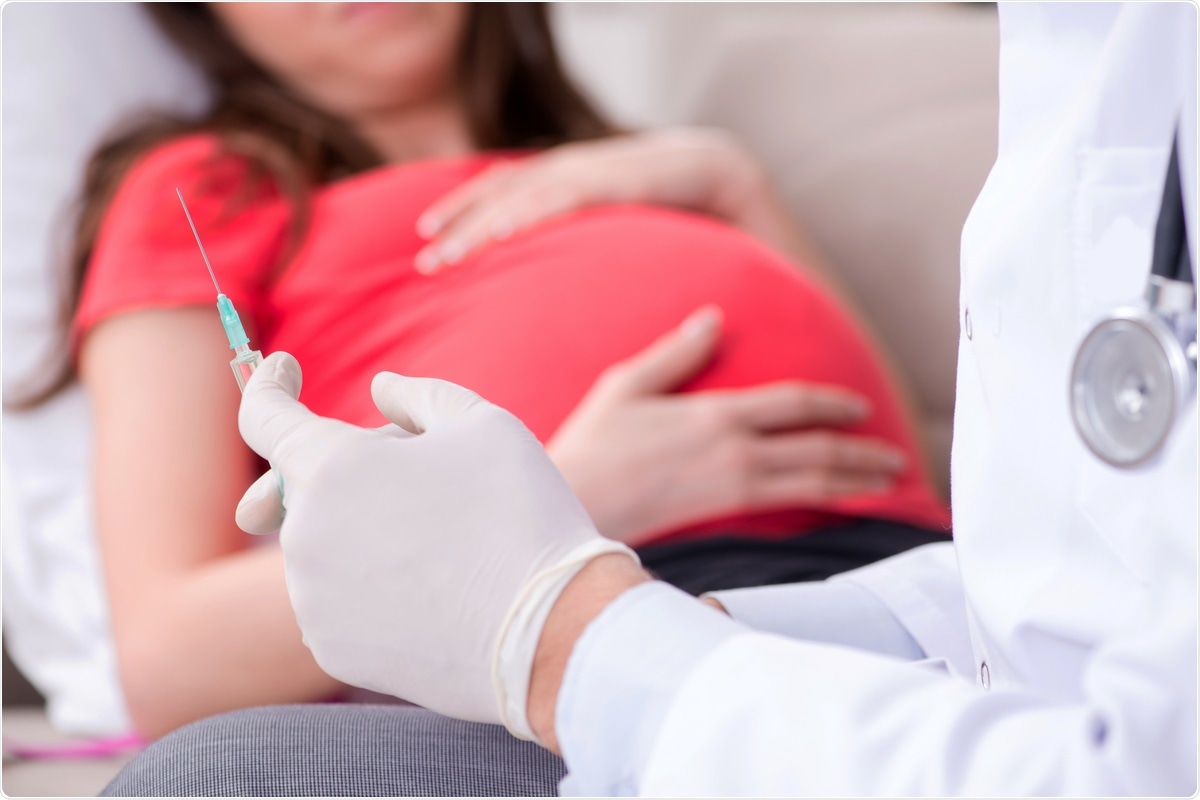The rapid spread of the severe acute respiratory syndrome coronavirus 2 (SARS-CoV-2) caused intensive research on the development of a safe and effective vaccine, leading to the rollout of several different vaccines between December 2020 and January 2021. However, pregnant women were excluded from the initial trials for most coronavirus disease 2019 (COVID-19) vaccines, including the first one to be approved, the Pfizer/BioNTech messenger ribonucleic acid (mRNA) vaccine.
A new JAMA Pediatrics study describes the effects of maternal COVID-19 vaccination on pregnancy outcomes and infant health.

Study: Association of BNT162b2 COVID-19 Vaccination During Pregnancy With Neonatal and Early Infant Outcomes. Image Credit: Elnur / Shutterstock.com
Introduction
Uncertainty regarding the safety of COVID-19 vaccines has been cited as one of the major reasons for vaccine unwillingness during pregnancy. However, observational data using vaccinations administered to high-risk pregnant women, such as frontline healthcare workers, has been used to issue recommendations for universal vaccination against COVID-19 in pregnancy.
Earlier studies on neonatal outcomes have not been large enough or long enough and lacked a comparison group. The current study used data from an Israeli statutory health fund called Maccabi Healthcare Services, which represents over 25% of the population. As of January 19, 2021, COVID-19 vaccination has been recommended in Israel for all pregnant women.
Study findings
The study population included mother-infant dyads between March 1, 2021, and September 31, 2021. Taken together, about 24,000 newborns, with about 16,700 of them having been born to mothers who had taken the vaccine, were included in the current study.
A majority of the babies born to mothers who were vaccinated against COVID-19 during pregnancy were born to older mothers who were more likely to have taken the flu shot, more likely to be part of the ethnic majority group, and live in a richer neighborhood.
After considering the observations appropriately, exposed infants had higher rates of pertussis immunization and lower rates of infection SARS-CoV-2. However, preterm births were comparable in both groups, as well as small-for-gestational-age. Hospitalization rates were also similar in neonates, as were the rates of phototherapy.
Infant deaths made up 0.1% of either cohort, with similar proportions of preterm births in either group. Congenital anomalies and heart defects were comparable overall, though major heart defects were only half as common following prenatal exposure to the vaccine in the first trimester.
Implications
The current study failed to show any increased illness or deaths among infants exposed to the Pfizer vaccine prenatally as compared to infants born to non-vaccinated mothers. Birth weights and gestational age were also similar in both groups.
The study also compared first-trimester and second-trimester vaccinations for their effects on gestational age and birth weight, finding no difference. Congenital malformations were similar in both groups and comparable to those reported before the pandemic.
“These findings contribute to current evidence in establishing the safety of BNT162b2 to offspring and can be used to inform pregnant patients, couples planning pregnancy, and counseling physicians. Robust assessments of maternal and offspring safety are important to reduce vaccine hesitancy and increase confidence among pregnant women.”
Further studies should include both stillborn and live-born infants.
Journal reference:
- Goldshtein, I., Steinberg, D. M., Kuint, J., et al. (2022). Association of BNT162b2 COVID-19 Vaccination During Pregnancy With Neonatal and Early Infant Outcomes. JAMA Pediatrics. doi:10.1001/jamapediatrics.2022.0001.